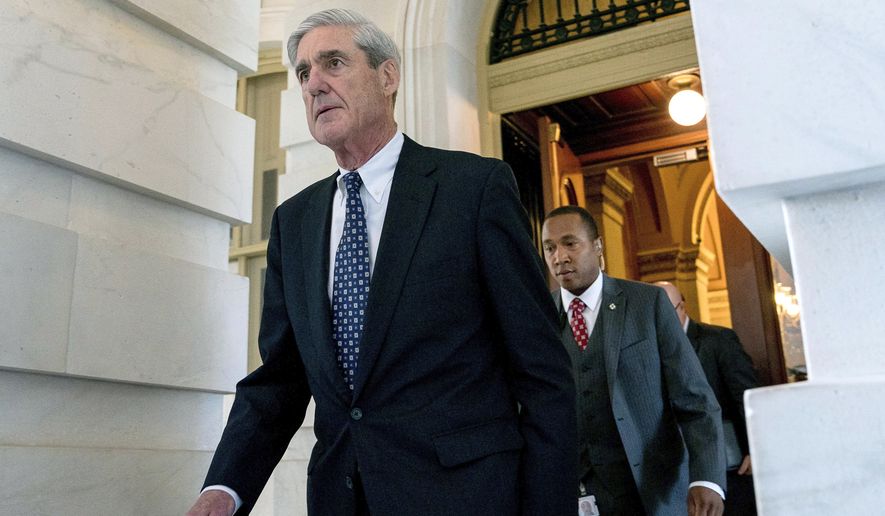A federal judge ruled Monday that special counsel Robert Mueller’s investigation into Russian meddling in the 2016 election is not illegal.
The decision rejected a challenge by one of the Russian-linked companies Mr. Mueller’s team has pursued for financing the social media campaign Russian operatives used to sow chaos during the campaign.
Concord Management & Consulting LLC had argued Mr. Mueller’s appointment was illegal and the structure of the special counsel’s office, with certain freedom and powers normal prosecutors don’t have, violated the Constitution.
Judge Dabney L. Friedrich rejected those claims, and also brushed aside claims Mr. Mueller, in charging people not directly employed by the Russian government, has gone beyond his charge.
“The special counsel may investigate the Russian government’s interference ’efforts,’ which involved non-governmental third parties,” Judge Friedrich wrote. “Concord’s alleged actions are therefore within the scope of the special counsel’s investigation. Because the investigation of Concord was authorized, so was the prosecution.”
Mr. Mueller’s probe has many tentacles. His team is currently prosecuting former Trump campaign chairman Paul Manafort in a courtroom in Virginia over bank fraud charges that have a very tenuous link to the Russian election interference.
And Mr. Manafort faces other money-laundering charges in a court in D.C. Mr. Mueller is also still negotiating with President Trump over whether the president will agree to an interview in the investigation, and under what conditions.
The special counsel’s office has won guilty pleas from several former Trump campaign officials for lying to investigators.
And Mr. Mueller is pursuing cases against alleged Russian social media trolls and against Russian military intelligence operatives he has accused of hacking computers and accounts of American political parties and campaign officials, then leaking that information to further the chaos of the election.
Judge Friedrich’s ruling joins those of judges in both prosecutions of Mr. Manafort, who also ruled that the special counsel is on solid ground in the wide-ranging probe.
The crux of the ruling is how much power the Justice Department has to oversee the special counsel. In this case since Attorney General Jeff Sessions has recused himself, that means how much power Deputy Attorney General Rod Rosenstein has to control the investigation or to fire Mr. Mueller.
Mr. Manafort and Concord have argued that Mr. Mueller is acting as if he’s unanswerable to anyone, putting him outside the three branches of government.
But Mr. Mueller’s team says he can be fired for something as small as “failure to accept supervision” — essentially ignoring Mr. Rosenstein’s directions. Judge Friedrich said that puts him squarely inside the executive branch’s control, which makes the arrangement constitutional.
• Stephen Dinan can be reached at sdinan@washingtontimes.com.




Please read our comment policy before commenting.